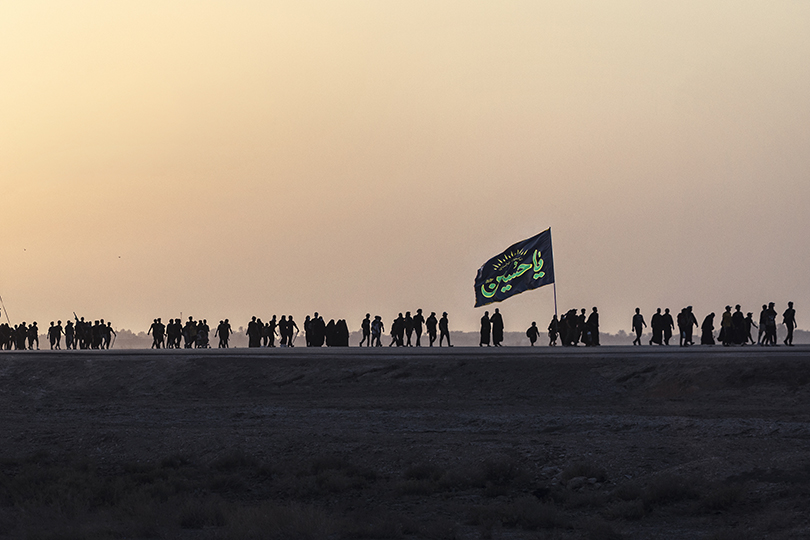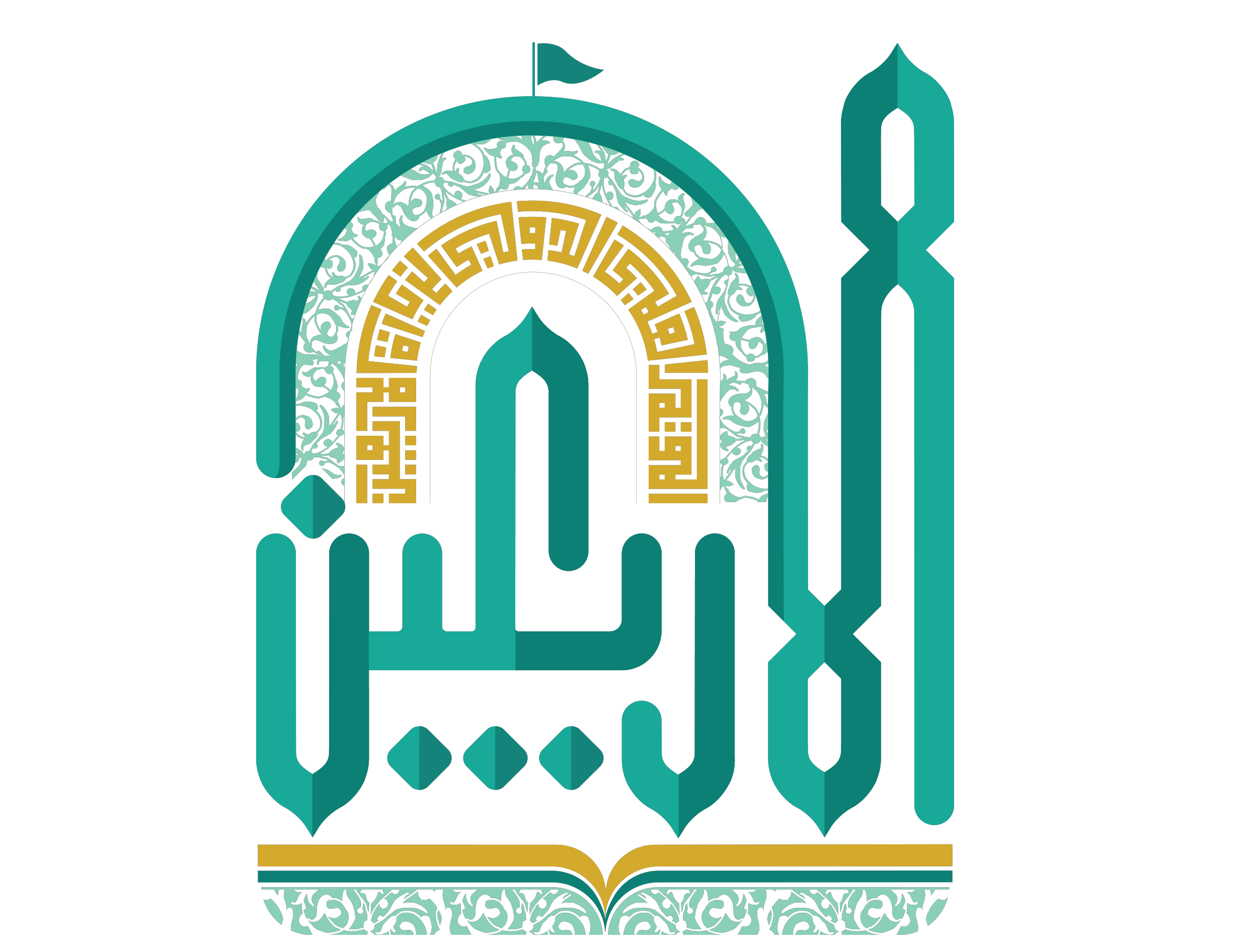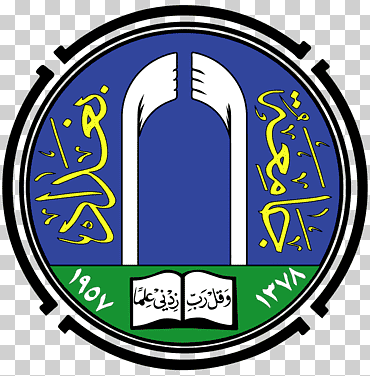
















































































The 9th International Scientific Conference on the Arbaeen Pilgrimage
“The 9th International Scientific Conference on the Arbaeen Pilgrimage is a leading platform for promoting the values of humanity and justice, inspired by the principles of the Husayni revolution. It focuses on advocating for the oppressed and marginalized, as well as fostering cultural and intellectual exchanges among different religions and cultures. Additionally, it aims to highlight the civilizational project represented by the Arbaeen pilgrimage.”
Deadline for Abstract Submission 2025 / 3 / 31
Deadline for Research Submission 2025 / 6 / 15

day-1/
The first day begins with the opening in the morning, followed by the noon prayer. In the afternoon, dialogue sessions are held with foreign guests to discuss the rapprochement of religions and exchange ideas. Finally, the evening dialogue session is organized, focusing on enhancing understanding between different cultures and religions, which enhances the spirit of cooperation and coexistence..
day-2
The second day is dedicated to research and discussion of the main themes of the conference. Studies and research related to the specified topics are presented, followed by extensive discussions among the participants. In conclusion, the most important findings and recommendations are summarized, and the conference is concluded with a small ceremony to honor the participants and thank them for their valuable contributions.

ماذا قال الضيوف؟
Karbala Center for Studies and Research at the Holy Shrine of Imam Hussein In cooperation with the University of Baghdad And the Academic Scientific Council for the Arbaeen Pilgrimage
Topics
Human Studies and Research
The Arbaeen pilgrimage is a unique human phenomenon at the local and international levels, with its human characteristics represented in influential events that enrich the religious and philosophical legacy of societies. This legacy is closely linked to the historical sequence of events that accompanied this pilgrimage and its manifestations throughout history, as noble philosophical values emerge based on the essence of the Islamic religion and the spirit of the eternal Muhammadan message, which left a great impact on the poetic and literary output enhanced by the culture of the Arbaeen pilgrimage. The media and religious tourism play an important role in defining the nature of the pilgrimage and its rituals, and its psychological, social, educational and economic impact, in addition to supporting the efforts of those in charge of showing the pilgrimage in the civilized face it deserves, and appreciating the efforts of volunteers in organizing it. The human studies and research within the conference proceedings include the following: Thought and Beliefs: Studying the impact of religious and philosophical thought on society. Philosophy: Discussing the philosophical values related to the pilgrimage. Language and Literature: The impact of poetry and literature on enhancing the culture associated with the pilgrimage. History: Analysis of historical events associated with the Arbaeen pilgrimage. Economy: The impact of the visit on the local economy. Media: The role of the media in covering the visit and its impact on social attitudes. Soft war: The impact of media and psychological campaigns on the understanding of the visit. Tourism: Religious tourism and factors attracting visitors. Volunteer work: The role of volunteers in organizing the visit.
Arbaeen Pilgrimage and Contemporary Technological Applications of Applied Sciences
Arbaeen Pilgrimage and contemporary technological applications of applied sciences and modern technology in all its branches play an important and effective role in managing the Arbaeen Pilgrimage events. Planning for this event before the pilgrimage season requires identifying the technological, constructional and logistical challenges it requires, and preparing to ensure that the pilgrimage rituals are completed within the time frame and geographical extension without obstacles or disruptions in the field of humanitarian services and other related administrative and service aspects. These sciences and applications revolve around the following: The role of cybersecurity: Protecting peaceful coexistence among nations according to the Arbaeen ritual. Modern technologies in cybersecurity: To protect data and digital identities during the Arbaeen Pilgrimage. Digital crisis management: and its challenges during the Arbaeen Pilgrimage. The role of artificial intelligence: Confronting potential cyber attacks during the Arbaeen Pilgrimage. Artificial intelligence applications: Which enhance identity and support community coexistence during the Arbaeen Pilgrimage. Big Data: Its role in understanding the civilizational challenges accompanying the Arbaeen Pilgrimage. Advance planning and design: And innovations in sustainable infrastructure, urban and regional planning and smart transportation during the Arbaeen Pilgrimage. Harnessing communications technology: and the fifth generation (5G) in line with the era of globalization during the Arbaeen visit. Achieving food and water security: during the Arbaeen visit and contemporary technological applications. Securing sustainable energy: according to scientific data and modern technology, and diagnosing opportunities to respond to overcome emerging challenges during the Arbaeen visit and energy sustainability in events. Using biotechnology: and data on scientific developments in the field of global health during the Arbaeen visit, and studying the health effects associated with the visit. Applying mathematical models and statistical data: to understand the effects of the Arbaeen visit and help in crowd management and advance planning. Studying sustainable and logistical environmental impacts to analyze the impact and environmental planning and develop effective strategies for resource management during the Arbaeen visit.
Sociology and the Arbaeen Pilgrimage
The Arbaeen Pilgrimage is a human phenomenon in which the highest values and good morals are embodied at their highest levels, as this pilgrimage gained its honor and high status from the status of Imam Hussein bin Ali, peace be upon him, and his martyrdom on the holy land of Karbala for the sake of upholding the religion of his grandfather Muhammad, may God bless him and his family and grant them peace. Therefore, from this starting point, many trends and methodologies branch out to study the nature of the Arbaeen Pilgrimage and the moral values that guarantee the rights of visitors, and to understand their customs and traditions, and the impact of the pilgrimage on their psychological state, in order to come up with results that enhance the collective spirit and help in the success of the work of gatherings and processions according to the following foundations and sciences: Sociology of the Arbaeen Pilgrimage and the development of methodologies for studying the phenomenon. Studying the customs and traditions of visitors and their reflections on the Arbaeen Pilgrimage. The psychological effects of the Arbaeen Pilgrimage on visitors. Enhancing the collective spirit in the Arbaeen Pilgrimage community through the highest moral values. Studying the challenges facing human rights among visitors during the Arbaeen Pilgrimage. Hussaini processions and understanding how they work and the foundations followed in organizing them.
The reaction of the ruling authorities towards the Arbaeen visit
The Arbaeen pilgrimage is in fact a million-strong mass march that demonstrates the pilgrims’ support for the lofty values for which Imam Hussein (peace be upon him) was martyred, and their belief in the principles of the Husseini revolution against injustice and tyranny. This march has terrified the unjust ruling authorities throughout the ages, as they saw it as a blatant challenge to their tyranny and a great fear for their thrones. Therefore, they suppressed the participating masses and abused them with the most heinous means of oppression. This suppression and oppression were embodied in their most violent forms in confronting the Arbaeen pilgrimage throughout the years of the former regime’s rule, which necessitates historical documentation of these events and research into the most important of them, which are: 1. The Safar Uprising in 1977 and the political events intertwined with it and their impact on the pilgrimage.
Crowd management and security
The Arbaeen pilgrimage is a huge humanitarian event characterized by large numbers of visitors, who are present in one place and over a period of several weeks, which poses a huge logistical, administrative and security challenge. This requires employing the maximum possible administrative, operational and security energies within the work areas that witness the Arbaeen pilgrimage events, which calls for deepening research and study in the following specializations: Developing effective strategies: to organize the movement of Arbaeen pilgrims, control congestion, and facilitate the movement of crowds. Studying and analyzing security threats: accompanying the Arbaeen pilgrimage, preparing and implementing emergency procedures to protect pilgrims, and developing plans to maintain public security. Utilizing artificial intelligence technologies: in analyzing crowd movement, and ensuring the quality and speed of security response. Addressing emerging health crises: providing first aid, providing basic health care, and training Arbaeen pilgrims to deal with health crises. Information security: as a basic requirement to maintain the stability of the Arbaeen pilgrimage community. Analysis of the role of civil society organizations: and activating them in supporting the organization of the Arbaeen pilgrimage. Study of the environmental and logistical impacts of the Arbaeen pilgrimage.
committees.
Scientific committees.
- Prof. Dr. Nadhir Jabbar Al-Hindawi – Chairman of the Committee (Karbala Center for Studies and Research)
- Prof. Dr. Riyadh Kazim Salman Al-Jumaili (Karbala Center for Studies and Research)
- Prof. Dr. Muhammad Ali Al-Anbar (Karbala Center for Studies and Research)
- Prof. Dr. Sabah Rasool Al-Jabiri (Karbala Center for Studies and Research)
- Prof. Dr. Shaker Faleh Shaker (Karbala Center for Studies and Research)
- Prof. Dr. Nada Khalifa Muhammad Ali (Urban and Regional Planning Center – University of Baghdad)
- Prof. Dr. Hassan Mandil Hassan Al-Akeili (College of Education for Girls – University of Baghdad)
- Prof. Dr. Hassan Habib Al-Kuraity (Karbala Center for Studies and Research)
- Prof. Dr. Muhammad Qader Ismail (College of Engineering – University of Baghdad)
- Prof. Dr. Nahla Abdul Rida Saleh Al-Bakri (Ibn Al-Haytham College of Education – University of Baghdad)
- Prof. Dr. Maitham Mutashar Sharqi (College of Engineering – University of Baghdad)
- Prof. Dr. Salman Zaidan Khalaf (College of Science – University of Baghdad)
- Prof. Dr. Haider Muhammad Abd Allah Al-Karbala'i (Karbala Center for Studies and Research)
- Prof. Dr. Jasem Muhaysin Nasser (College of Agriculture – University of Baghdad)
- Prof. Dr. Ali Hawas Halou (College of Islamic Sciences – University of Baghdad)
- Asst. Prof. Dr. Alaa Hassan Marza (College of Nursing – University of Baghdad)
- Asst. Prof. Dr. Ali Hussein Muhammad Abu Khsha (Department of Preparation and Training – Holy Karbala Education Directorate)
- Asst. Prof. Dr. Faten Kamel Shaheen (Department of Preparation and Training – Holy Karbala Education Directorate)
- Asst. Prof. Dr. Ahmad Jabbar Al-Janabi (College of Computer Science and Mathematics – University of Kufa)
- Dr. Ali Saeed Jassim (College of Science – University of Kufa)
- Prof. Dr. Keiko Sakai (Japan)
- Prof. Dr. Kaoru Yamamoto (Japan)
- Prof. Dr. Mariam Konkelr (Germany)
- Prof. Dr. Adhraa Abedi (India)
- Prof. Dr. Lloyd Funst (United Kingdom)
- Dr. Troshina Nadeikhda (Russian Federation)
- Dr. Rebecca Master Tron (Ireland)
Preparatory Committee
- Prof. Dr. Mehdi Wahab Ni'mat Nasr Allah – Chairman of the Committee (Karbala Center for Studies and Research)
- Prof. Dr. Adnan Hashim Al-Sharoufi (Faculty of Law – University of Karbala)
- Prof. Dr. Samir Khalil Shamtou (Karbala Center for Studies and Research)
- Prof. Dr. Hazima Musa Khalil Al-Abbasi (Faculty of Sciences – University of Baghdad)
- Assoc. Prof. Dr. Ali Sadiq Diyab (Head of the Student Activities Department – University of Baghdad)
- Assoc. Prof. Dr. Mohammed Wissam Al-Mahna (Karbala Center for Studies and Research)
- Assoc. Prof. Dr. Thamer Makki Ali (Karbala Center for Studies and Research)
- Assoc. Prof. Dr. Haider Kazim Jasem Al-Jizani (Karbala Center for Studies and Research)
- Assoc. Prof. Dr. Ahmed Fadel Hassoun (University of Karbala)
- Assoc. Prof. Dr. Diya Al-Safi (Faculty of Tourism Sciences – University of Karbala)
- Assoc. Prof. Dr. Imtithal Kazim Al-Naqib (Center for Reviving Arab Scientific Heritage – University of Baghdad)
- Dr. Abbas Hadi Abd (Faculty of Sciences for Women – University of Baghdad)
- Dr. Ahmed Khudr Abdul-Rida (Faculty of Engineering – University of Baghdad)
- Dr. Anwar Saeed Al-Haydari (Karbala Center for Studies and Research)
- Dr. Ahmed Hashim Al-Yahya (Faculty of Sciences – University of Baghdad)
- Dr. Anmar Kamel Khudair (Department of Preparation and Training – Karbala Holy Education Directorate)
- Dr. Salam Jamil Saqban (Department of Preparation and Training – Karbala Holy Education Directorate)
- Dr. Hussam Sabbar Al-Da'ami (Faculty of Tourism Sciences – University of Karbala)
- Dr. Amir Ahmed Raheem Al-Shammari (University of Babylon)
- Dr. Mustafa Mohsen Shaker (Faculty of Administration and Economics – University of Karbala)
- Lecturer Salah Hassan Youssef (Karbala Center for Studies and Research)
- Lecturer Israa Nazeer Jabar (Faculty of Information Engineering – University of Al-Nahrain)
- Lecturer Haider Adnan Sadiq (Urban and Regional Planning Center for Graduate Studies – University of Baghdad)
- Lecturer Amir Kamel Jawad (Ministry of Reconstruction and Housing)
- Lecturer Sinan Samir Mahmoud (Faculty of Sciences – University of Baghdad)
- Professor Abdul-Amir Taha (Head of the Public Relations Department – The Holy Husayn Shrine)
- Professor Basim Jihad Matar (Karbala Satellite Channels Group)
- Sheikh Mohammed Abdul-Rida Al-Sa'adi (Karbala Center for Studies and Research – Netherlands Office)
Conference Research Topics Committee
- Prof. Dr. Karim Hassan Allawan – Committee Chair (Dean of the Center for Urban and Regional Planning – University of Baghdad)
- Prof. Dr. Faisal Ghazi Mohammed – Coordinator for the module on Crowd Management and Security (College of Science – University of Baghdad)
- Prof. Dr. Ghassan Hameed Abd Al-Majeed – Coordinator for the module on the Arbaeen Visit and Contemporary Technological Applications in Applied Sciences (Dean of the College of Engineering – University of Baghdad)
- Prof. Dr. Na'ama Dahesh Farhan Al-Tai – Coordinator for the module on Human Studies and Research (Dean of the College of Islamic Sciences – University of Baghdad)
- Prof. Dr. Fallah Hassan Al-Asadi – Coordinator for the module on the stance of the ruling authorities towards the Arbaeen Visit
- Prof. Dr. Raed Hamoud Abd Al-Hussein Al-Hassouna – Coordinator for the module of Sociology (University of Dhi Qar)
Coordination Committee
- Prof. Dr. Raed Faleh Hassan – Committee Chair (Dean of the College of Science – University of Baghdad)
- Asst. Prof. Dr. Najah Abdul Hassan Abdul (College of Science – University of Baghdad)
- Asst. Prof. Dr. Durgham Mazhar Kareem (College of Engineering – University of Baghdad)
- Asst. Prof. Dr. Sarah Mahmoud Hubaytar (Center for Urban and Regional Planning for Postgraduate Studies – University of Baghdad)
- Lecturer Dr. Ammar Saleh Ashour (College of Engineering – University of Baghdad)
- Lecturer Dr. Ali Abdul Hussein Kazem (College of Science – University of Baghdad)
- Lecturer Dr. Khalid Hussein Abbas (College of Science – University of Baghdad)
- Professor Adel Ghalib Al-Yasiri (Karbala Center for Studies and Research)
- Professor Adel Hashim Al-Mousawi (Karbala Center for Studies and Research)
- Professor Fares Shujaa Sadiq (Karbala Center for Studies and Research)
Media and Cultural Relations Committee
- Prof. Dr. Sadiq Jassim Al-Sahan – Chair (Iraqi Media Network)
- Prof. Dr. Ammar Taher Mohammed – Dean of the College of Media (University of Baghdad)
- Asst. Prof. Dr. Hussein Ali Nasser Al-Mujab – Ministry of Education
- Asst. Prof. Dr. Amal Mohammed Hassan Al-Asadi – College of Fine Arts (University of Baghdad)
- Asst. Prof. Dr. Zaid Salem Suleiman – College of Science (University of Baghdad)
- Lecturer Dr. Harith Mohammed Ibrahim – Director of the Media Department (University of Baghdad)
- Lecturer Dr. Mohammed Ali Al-Saadi – Ministry of Education
- Lecturer Dr. Hussein Mohammed Abdul Fayhan – Department of Preparation and Training (Directorate of Education in Holy Karbala)
- Asst. Lecturer Lama Sabar Zamil – Center for Urban and Regional Planning (University of Baghdad)
- Mr. Taysir Saeed Al-Asadi – Noon News Agency
- Mr. Aref Hosseini – Ahlulbayt World Assembly
- Mr. Ali Abdul Khaliq Abdul Rasul – Center for Urban and Regional Planning (University of Baghdad)
- Professor Zahid Jihad Al-Bayati – Researcher in Volunteer Work
- Journalist Neil Van Der Linden – Netherlands
Academic Scientific Council for the Arbaeen Pilgrimage
- Prof. Dr. Mohammad Yusuf Hajem Al-Heiti – Committee Chair (University of Diyala)
- Prof. Dr. Salah Salman Zain Al-Abidin (University of Kirkuk)
- Prof. Dr. Abdulkhaleq Khmeis Ali (University of Diyala)
- Prof. Dr. Majed Aziz Al-Saadi (University of Misan)
- Prof. Dr. Alaa Hussein Abdul (University of Al-Nahrain)
- Prof. Dr. Qasem Shuaib Abbas Al-Sultani (University of Al-Nahrain)
- Prof. Dr. Ammar Aboud Nassar (University of Kufa)
- Prof. Dr. Adnan Malih Sajat (University of Dhi Qar)
- Asst. Prof. Dr. Rasheed Saadoun Al-Abadi (University of Diyala)
- Asst. Prof. Dr. Mariam Abdul Hussein Al-Tamimi (University of Kufa)
- Asst. Prof. Dr. Najeh Jaber Al-Miyali (University of Al-Muthanna)
- Asst. Prof. Dr. Ali Majid Khudir (Technological University)
- Lecturer Dr. Amir Ahmed Rahim Al-Shammari (University of Babel)
- Lecturer Dr. Ali Kazem Hussein (University of Wasit)
- Lecturer Dr. Hassan Jaber Al-Atta (University of Baghdad)
- Lecturer Dr. Ali Kazem Yaseen (University of Al-Qadisiyyah)
- Lecturer Dr. Amir Abadi Al-Abadi (Consultant at the Family Counseling Center)
- Ms. Kifah Haddad (Writer and Media Personality)
Art Exhibition Supervisory Committee
- Asst. Prof. Dr. Zahra Imad Hussein (Center for Urban and Regional Planning / University of Baghdad)
- Asst. Prof. Dr. Ali Sadiq (Office of the Presidency of the University of Baghdad)
- Lecturer Dr. Hassan Jaber Mohammed (College of Science / University of Baghdad)
- Lecturer Dr. Rasha Raad Ahmed (College of Fine Arts / University of Baghdad)
- Lecturer Dr. Ammar Saleh Ashour (College of Engineering / University of Baghdad)















